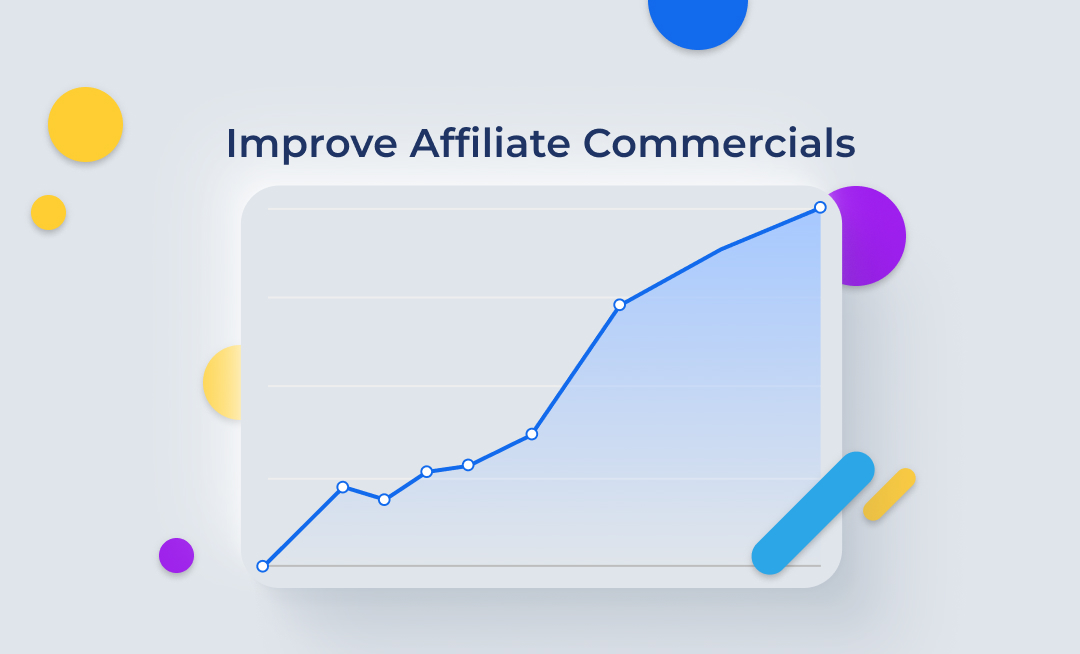
Forex introducing broker (IB) programs are becoming a more popular way to build a steady passive income stream in the FX industry. These programs are partnerships where individuals or companies help Forex brokerages find new traders and earn commissions in return. Therefore, this arrangement benefits all parties involved. The Forex brokerage gets more clients, traders find trustworthy platforms, and IBs earn ongoing commissions from their referrals’ trading activities.
In this guide to Forex IB programs, we explain how they work and give you actionable steps to launch and scale your own introducing broker business. Read on to get the insights, whether you’re a trading veteran looking to diversify your income or a marketer seeking opportunities in the forex industry.
What are Forex IB Programs?
Forex introducing broker (IB) programs are partnerships where individuals or companies connect prospective traders with reputable brokers. The structure is straightforward. IBs introduce new traders to their partner brokers and earn ongoing commissions based on their clients’ trading volumes.
However, they differ from traditional Forex affiliate programs. Both focus on referring traders to a brokerage for commissions. But affiliates mainly focus on one-time referrals, while IBs do a lot more. Besides referring traders, they also focus on client relationship management and long-term engagement.
Forex IBs provide comprehensive support to clients, including basic trading education, market analysis, and personalized guidance. Such a higher level of engagement usually requires regulatory compliance and proper licensing, which isn’t always the case with affiliates. But it also leads to stronger client relationships and more sustainable income. Plus, IBs typically gain access to detailed client trading information, which helps them to better serve their community and optimize their support strategies.
Benefits of Becoming an Introducing Broker
There are several benefits of becoming a Forex introducing broker, including getting passive income, having a flexible work model, growing professionally, and having recurring income.
Below is a more detailed overview of each of these benefits.
Passive Income Opportunities
As an IB, you earn commissions every time your referred clients trade, whether you’re actively working or not. When a client opens a position, a percentage of the spread or commission goes directly to you. This means that once you’ve built a solid client base, your income continues to flow even while you’re sleeping. Many brokers offer competitive commission rates ranging from $2-$10 per lot traded, and with active traders executing multiple trades daily, these numbers can add up massively.
Flexible Work Model
The Forex IB business model puts you in complete control of your operation. You can start part-time while maintaining your current job, work from anywhere in the world, and scale at your own pace.
Essentially, you have the freedom to choose your way of working, whether that means one-on-one client interactions or building a large network through digital marketing. As your business grows, you can expand your team, automate processes, or focus on specific market segments that interest you most.
Professional Growth
Working as an introducing broker naturally develops your market knowledge and business acumen. You’ll gain deep insights into trading strategies, market analysis, and risk management as you support your clients.
Additionally, you’ll develop valuable skills in digital marketing, client relationship management, and business development. This expertise not only enhances your ability to serve your trading clients but also provides access to various opportunities within the financial sector.
Recurring Earnings
Forex IB programs provide lifetime commissions from your referred clients. Every time your clients trade, you earn month after month, year after year. This compounding effect means that each new client adds to your existing revenue stream, creating a snowball effect over time.
Many successful IBs report that their monthly earnings continue to grow even years after initial client referrals, due to consistent trading activity and word-of-mouth recommendations from satisfied clients.
How to Get Started as an IB
Now that you know what Forex introducing broker programs are and the benefits, let’s look at how to get started. Here are step-by-step strategies to help you establish a strong foundation for your IB business and set yourself up for success.
Choose the Right Brokerage
Choosing a reputable Forex broker is essential for the success of an IB. Look for brokers regulated by reputable authorities in the relevant region, like FCA, CySEC, or ASIC. This ensures both your interests and those of your clients’ are protected.
Also, compare commission rates, but don’t make it your only criterion. Evaluate their trading platforms, customer support quality, and educational resources. Check their reputation through online reviews and community forums. Partnering with a solid broker means stable payments, reliable trading conditions for your clients, and professional support when you need it.
Understand Program Terms
Before signing any IB program agreement, thoroughly review the partnership terms. Pay attention to commission structures. Are they based on volume, spread, or a hybrid model? Get to understand the payment thresholds and payout frequency as well. Some brokers pay monthly, others biweekly.
Don’t forget to look for transparency in client tracking systems and reporting tools. Some of the key questions to ask include:
- What marketing support do they provide?
- Are there any restrictions on client acquisition methods?
- What happens to your commissions if you terminate the partnership?
- What can result in unexpected termination of the partnership?
A clear understanding of these terms will help you plan your business strategy effectively.
Build a Client Base
Start with your immediate network to build a strong and growing client base for your Forex IB business. Share your knowledge and expertise on social media platforms like LinkedIn, X, and Facebook. You should aim to create valuable content that addresses common trading challenges and solutions.
You can also start a blog or YouTube channel to show your market insights. If you join trading communities and forums, focus on adding value rather than direct promotion. Then use Google or social media to target specific demographics interested in Forex trading for a broader reach. Building trust is crucial. So, maintain regular communication with potential clients through newsletters or market updates.
Acquire Essential Knowledge
While you don’t need to be a master trader to work as an introducing broker, solid market understanding enhances your credibility and service quality. If you’re a beginner, start with the basics like currency pairs, market hours, fundamental analysis, and technical indicators. Also, familiarize yourself with major economic events and their market impact.
Many brokers offer free educational resources that you can take advantage of. You can even go as far as getting certified in Forex trading or financial markets through recognized institutions as well.
Understanding trading psychology is equally important, as it helps you better relate to your clients’ challenges and provide meaningful support. Don’t forget to stay updated with market news and trends through reliable financial news sources and broker research materials.
Potential Earnings and Commission Structures
Forex IB programs offer three primary commission structures. These are revenue share, per lot commission, and hybrid models. Understanding these commission structures and earning potential is crucial for planning your IB business.
Commission Structure Types
Generally, you will get paid through any of these commission structures when working as an introducing broker.
- Revenue Share Models: With this structure, you earn a percentage of the spread or commission that brokers charge clients. Therefore, there’s a higher earning potential with active traders who generate significant spreads. Also, the earnings can fluctuate based on market conditions and trading activity.
- Per Lot Commission: This model offers fixed payment for every standard lot traded by referred clients. It’s easier to predict earnings based on trading volume as they aren’t affected by varying spread conditions. So, it’s a good model for IBs who prefer consistent, predictable income
- Hybrid Models: As the name suggests, hybrid models combine fixed payments with revenue sharing. They may include performance bonuses based on monthly targets and CPA (cost per acquisition) bonuses for new clients. As such, the structure provides multiple income streams from the same client base.
Factors Affecting Forex IB Program Earnings
Your potential earnings as an IB depend on several factors that work together to determine your monthly income. These include:
- Client Portfolio Size: More active traders mean more commission opportunities. However, focus on quality over quantity because ten active traders can generate more income than fifty occasional traders.
- Trading Volume: Your earnings directly correlate with how frequently your clients trade. High-volume traders who execute multiple positions daily can generate significant commissions compared to occasional traders.
- Client Retention: Long-term clients provide stable, recurring income. Poor client retention means constantly spending resources on acquiring new traders. Focus on client education and support to maintain high retention rates.
- Market Volatility: Higher market volatility often leads to increased trading activity, potentially boosting your earnings. However, this can also lead to client losses and eventual account closures if traders don’t address risk management properly.
- Service Quality: IBs who provide valuable support, education, and tools often see higher client retention and referrals, leading to organic growth and increased earnings over time. The broker you choose can affect the satisfaction of the clients you refer to them as well.
- Commission Rates: While important, don’t base your broker choice solely on commission rates. Lower rates with higher client retention often outperform higher rates with poor client satisfaction.
Tips for Success in the IB Role
To succeed as a Forex IB, you need to focus on client education, maintain transparency, utilize digital tools, stay updated on market trends, and partner with reputable brokers.
Let’s explore these five essential strategies that can boost your performance and help you build a thriving IB business.
Focus on Client Education
Client education is your competitive advantage. When you establish yourself as a knowledge resource, you can build long-term relationships that turn into sustained revenue.
Create a structured education program covering Forex basics, risk management, and platform navigation. It can help to reduce client turnover, as educated prospective traders make informed decisions and stay longer with the broker. Consider developing:
- Weekly market analysis newsletters;
- Basic trading tutorials for beginners;
- Platform walkthrough sessions;
- Risk management workshops.
Maintain Transparency
Another important ingredient for succeeding as an introducing broker in the Forex market is maintaining transparency. It means being upfront about three critical areas: commission structures, potential risks, and realistic rewards.
Clear communication about spreads, fees, and your compensation model builds trust and reduces client disputes. If clients understand exactly what they’re paying for and what to expect, they’re more likely to:
- Make informed trading decisions;
- Recommend your services to others;
- Stay loyal during market downturns;
- Trust your future recommendations.
Leverage Digital Tools
Digital tools can help you scale easily when well mastered and implemented. The tools to use will depend on what you want to do and where. For instance:
- CRM systems to track client interactions and preferences;
- Social media scheduling tools for consistent content delivery;
- Analytics platforms to monitor campaign performance;
- Email automation for nurturing leads;
- Trading signal delivery systems.
These tools help you maintain professional communication while reaching more potential clients efficiently. Focus on platforms where your target audience spends time, for example, LinkedIn for institutional clients, Instagram or TikTok for retail traders.
Stay Updated on Market Trends
Market knowledge directly impacts your credibility and success. Thus, you should develop a systematic approach to staying informed, for instance:
- Subscribe to premium Forex news services;
- Follow reputable market analysts;
- Join professional trading communities;
- Attend industry webinars and conferences;
- Monitor central bank policies and economic calendars.
Then use this knowledge to provide timely, valuable insights to your clients through regular market updates or trading opportunity alerts.
Choose the Right Broker
Your choice of broker can make or break your IB business. Ideally, you should look for:
- Competitive commission structures;
- Reliable trading platforms;
- Strong regulatory compliance;
- Quality customer support;
- Marketing and training resources;
- Timely commission payments.
The right partnership provides the tools, support, and credibility you need to scale your business, while the wrong one can lead to trader complaints, delayed payments, and a damaged reputation.
Basically, success in Forex IB programs comes from building a sustainable business model focused on client success rather than quick wins. Implement these strategies systematically, and continuously refine your approach based on client feedback, results, and market conditions.
Common Challenges for IBs and How to Overcome Them
Like any other lucrative passive income stream, Forex IB programs have their share of challenges. These include client retention, market competition, and regulatory compliance. Understanding and preparing for these obstacles is helpful for long-term success.
Let’s explore these three major challenges that IBs commonly face and practical strategies to overcome them.
Client Retention
Forex traders often switch brokers as they seek better trading conditions, like tighter spreads or following losses. That can be problematic because losing clients means you lose immediate revenue, the potential for referrals and long-term commission streams. Moreover, acquiring new clients generally costs more than retaining existing ones.
To overcome the client retention challenge, partner with a Forex brokerage that offers the competitive terms that traders look for. These include:
- Tight spreads and competitive commission rates to minimize trading costs;
- Fast execution speeds with minimal slippage to ensure trades are filled at expected prices;
- High leverage options to maximize trading potential with smaller capital;
- Robust trading platforms with advanced features, charts, and analysis tools;
- Multiple deposit and withdrawal methods with fast processing times;
- Transparent trading conditions with clear fee structure.
Once you’re sure the brokerage will offer great client satisfaction to the traders you’ll bring in, you can focus on creating a comprehensive client support system. Regular communication is key. So, establish weekly check-ins to discuss trading performance and address concerns before they lead to account closure. You can even develop a structured onboarding process that sets realistic expectations from the start and have a loyalty program that rewards clients for trading volume or account longevity.
It’s also a good idea to create educational content tailored to different trading levels. This way, you can help clients progress from basic to advanced strategies. If your clients face losses, provide constructive feedback and help them understand market movements rather than letting them blame the platform or market conditions. Personal attention makes clients feel valued and less likely to seek alternatives.
Market Competition
The reality is that the Forex affiliate program ecosystem is saturated with many affiliates offering similar services. This means standing out among numerous competitors, especially those with established reputations and larger marketing budgets, can seem daunting. Many new IBs struggle to differentiate themselves and end up competing solely on commission rates, a race to the bottom that benefits nobody.
To overcome this challenge, develop a clear market positioning strategy. Instead of trying to serve everyone, identify specific trader segments with unique needs. For instance, you might focus on busy professionals who need simplified analysis, retirees interested in conservative trading strategies, or tech-savvy youth looking for automated solutions.
Also, create your unique value proposition by combining your personal experience, market knowledge, and specific expertise. If you have a background in technical analysis, make that your cornerstone offering. If you understand fundamental analysis deeply, position yourself as an expert in news trading strategies. Develop proprietary analysis methods or trading approaches that set you apart from generic IB services.
Regulatory Compliance
Forex regulations vary by jurisdiction and can change frequently, which introduces the challenge of compliance. Many IBs struggle to keep up with requirements across different regions, especially when serving international clients. Yet, non-compliance can result in hefty fines or a complete business shutdown.
To navigate this challenge successfully, it’s important to partner with brokers who utilize program management platforms with in-built compliance tools. That can make the work a lot easier for you. Then you can aim to thoroughly understand the regulatory framework in your primary operating regions. Creating a compliance checklist for all marketing activities and client interactions can also be very helpful.
Create templates for client communications that have been vetted for regulatory compliance, and maintain detailed records of all client interactions and transactions. All the compliance efforts might seem like an unnecessary burden, but they protect both you and your clients to ensure business longevity.
Why Forex IB Programs are a Gateway to Scale Your Brokerage
If you’re running a Forex brokerage, setting up an IB program and attracting high-quality IBs can help your business grow and increase in market share.
These programs help to expand client reach through a network of introducing brokers. Each one brings their unique network, local market knowledge, and established relationships to the table. This allows brokerages to penetrate markets that would be challenging or cost-prohibitive to enter directly.
Besides expanding the client base, these programs enhance client interaction. Generally, the personalized nature of IB relationships enhances client engagement and retention. Unlike automated systems or generic customer service, IBs provide face-to-face or direct personal support to their clients. They can explain complex trading concepts in familiar terms, offer customized guidance based on individual trading goals, and provide immediate support during market volatility.
Also, Forex IB programs are inherently scalable and have a mutual benefit structure. As IBs earn commissions based on their clients’ trading activities, they’re naturally motivated to acquire clients and ensure their long-term success. Such alignment of interests creates a sustainable ecosystem where brokers, IBs, and traders all benefit from each other’s success. The recurring revenue model means that both brokers and IBs can build stable, predictable income streams that grow over time.
Further Reading:



